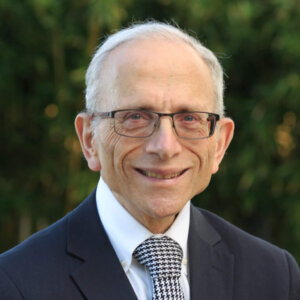Rabbi Raphall Goes to Washington
On three different occasions, the 111th Congress has opened its daily session with a prayer by a rabbi. The most recent prayer, delivered by Havana-born Rabbi Jacob Luski of St. Petersburg, Fla., on October 28, 2009, called upon Congress to “help us to be guides into unborn tomorrows rather than merchants dealing with yesterdays; to be creative cooperators in the world as it should be, rather than clever competitors in the world as it is.” So far, that prayer has gone unanswered.
The fact that a rabbi delivered this opening prayer elicited no controversy. Rabbinic invocations — even when delivered in the hallowed halls of Congress — are today scarcely even seen as news. During the 110th Congress, rabbis delivered the day’s opening prayer nine different times.
It was not always so.
Indeed, the first time a rabbi delivered the opening prayer in Congress, 150 years ago this month, the event attracted widespread attention.
Frank Leslie’s Illustrated Newspaper heralded the news as “a striking feature of the times, evincing the triumph of an enlightened religious opinion over the vulgar prejudices of the world.” It printed a long biography of the rabbi (portraying him, quite wrongly, as the “Chief Rabbi of the New York Jews”), and it appended a handsome illustration.
By contrast, The Churchman, unofficial organ of the Episcopal Church, responded “with extreme sorrow, and almost disgust” to the rabbi’s prayer. It described his appearance in Congress as “no less than the official rejection of Christianity by the Legislature of the country.”
Still other commentators expressed puzzlement, wondering how wide the bounds of religious pluralism would stretch. One, quoted in The New York Herald, feared that “the next thing we shall have will be a Shaking Quaker dancing a reel.” Another questioned whether Congress might someday be treated to a prayer by the Mormon leader, Brigham Young, “surrounded by his harem, threatening to send the administration to hell.”
The rabbi whose prayer sparked this lively debate was Morris Raphall (1798-1868) of New York’s Congregation B’nai Jeshurun. An ordained Orthodox rabbi with impressive university credentials, he possessed dazzling oratorical skills, and was once described as the first “glamour-rabbi” in American Jewish history.
Like “glamour-rabbis” after him, he knew how to attract media attention. When he appeared before Congress, on February 1, 1860, he did so in full rabbinic dress, piously bedecked in a white tallit and a large velvet skullcap. His prayer included several words of exotic Hebrew, among them the traditional priestly blessing. The Hebrew is reproduced, badly transliterated, in the official record of the day, preserved in The Congressional Globe.
Just under a year later, on the eve of the Civil War, Rabbi Raphall once again made headlines. Speaking in New York at the request of the American Society for Promoting National Unity, he described slaveholding as “no sin,” and declared that slave property was “expressly placed under the protection of the Ten Commandments.” When the Civil War broke out, he nevertheless extended strong support to the Union.
The prayer that Raphall delivered when he appeared before Congress proved less memorable than the fact that he delivered it at all. We know, thanks to the careful research of historian Bertram W. Korn, that Congressman (and later Vice-President) Schuyler Colfax of Indiana played a pivotal role in securing an invitation for a Jew to deliver the opening prayer. He was moved to do so, he explained, by a letter he had received from one of his Jewish constituents. His goal was to demonstrate publicly that, in America, the rights of Jews “are certainly equal to those of any other denominations.”
In recent years, members of Congress, inspired by similar goals, have once again widened the parameters of American religion. A year after the Supreme Court, in 1983, ruled that invocations, being “deeply embedded in the history and tradition of this country,” do not violate the Constitution, Congress, for the first time, invited an African-American woman minister to deliver its opening prayer. In 1991, it invited a Muslim imam. In 2000, it invited a Hindu priest. In 2003, it invited an openly gay clergyperson.
Several of these invitations proved controversial, and precisely for this reason the story of Rabbi Morris Raphall’s opening prayer back in 1860 bears recalling. It too, at the time, proved highly controversial, and some, as we have seen, wondered what was next.
One-hundred-fifty years later, we know. When Rabbi Luski stepped up to deliver his prayer in October, the fact that he was a Jew made no difference whatsoever.
Jonathan D. Sarna is the Joseph H. & Belle R. Braun Professor of American Jewish History at Brandeis University and the author of “American Judaism: A History” (Yale University Press, 2004). He is serving this year as senior scholar at the Mandel Leadership Institute in Jerusalem.






















